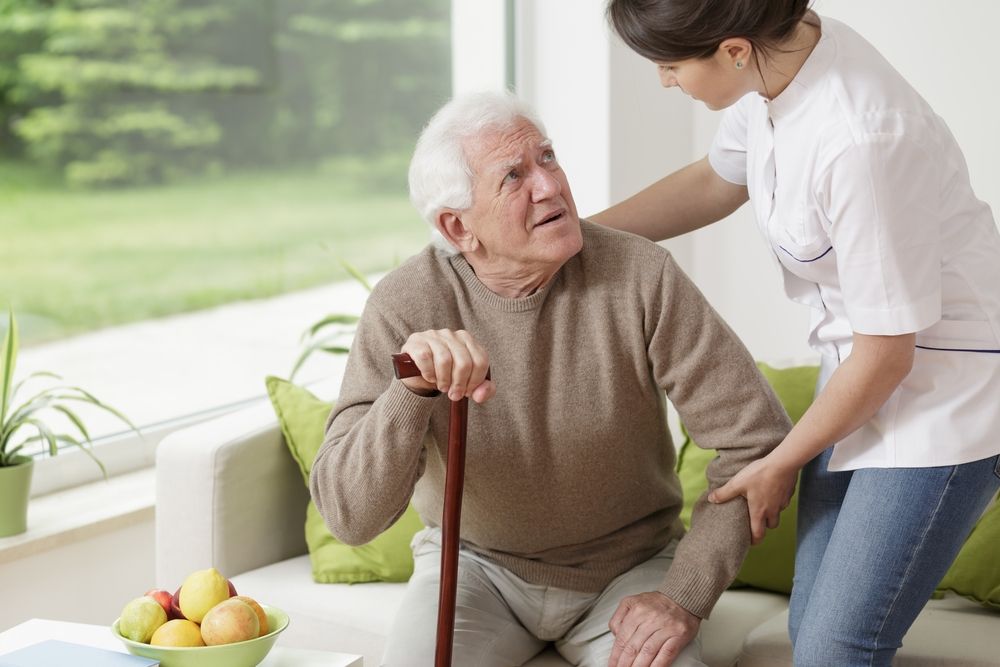Parkinsons Disease At A Glance
- About one million people in the U.S. live with Parkinsons disease.
- Every year, about 60,000 Americans are diagnosed with Parkinsons. This, of course, does not reflect the thousands of cases that go undetected.
- PD impacts the central nervous system and occurs when dopamine-producing nerve cells in the brain are decreased.
- Primary symptoms include shaking, slow movement, stiffness and difficulty with balance.
- There is no cure for PD. However, early detection and treatment can slow down the progression of the disease.
- Parkinsons is the second most common age-related neurodegenerative disorder after Alzheimers disease.
- While Parkinson’s reaches all demographics, the majority of people with PD are age 60 or older. Men and people with a family history of the disease have an increased risk.
Medicines For Parkinsons Disease
Medicines can help treat the symptoms of Parkinsons by:
- Increasing the level of dopamine in the brain
- Having an effect on other brain chemicals, such as neurotransmitters, which transfer information between brain cells
- Helping control non-movement symptoms
The main therapy for Parkinsons is levodopa. Nerve cells use levodopa to make dopamine to replenish the brains dwindling supply. Usually, people take levodopa along with another medication called carbidopa. Carbidopa prevents or reduces some of the side effects of levodopa therapy such as nausea, vomiting, low blood pressure, and restlessness and reduces the amount of levodopa needed to improve symptoms.
People living with Parkinsons disease should never stop taking levodopa without telling their doctor. Suddenly stopping the drug may have serious side effects, like being unable to move or having difficulty breathing.
The doctor may prescribe other medicines to treat Parkinsons symptoms, including:
- Dopamine agonists to stimulate the production of dopamine in the brain
- Enzyme inhibitors to increase the amount of dopamine by slowing down the enzymes that break down dopamine in the brain
- Amantadine to help reduce involuntary movements
- Anticholinergic drugs to reduce tremors and muscle rigidity
Sex Sensuality And Intimacy
Parkinsons can bring with it physical and emotional changes that may challenge the sexual and intimate side of relationships and this may result in a less active and enjoyable sex life. There are professionals who can help you overcome such difficulties and offer lots of help and advice.
See also Intimacy, sex and sensuality.
Read Also: Can You Get Disability For Parkinson’s Disease
Maintain A Positive Outlook
PD can bring out a lot of negative emotions. To be a healthy Parkie we need to focus on the positive things we have gained.
A friend I can share with and who understands my struggles, a closer bond with a family member, and 2 new hobbies are a direct result of my being diagnosed. Enjoying the simple gifts life brings, developing more patience, and knowing others care, are a few things people in my support groups have mentioned.
Research On Pd & Pregnancy

Even though Parkinsons is less common in women, especially of childbearing age, it certainly does occur. Women in this group are an underrepresented population. There have been no formal clinical trials conducted regarding PD and pregnancy, as pregnant women are largely excluded from medication and treatment trials due to fear of effects on the fetus.
Having more data and knowledge about pregnancy and PD may improve quality of life for people with PD who are of childbearing age. Collecting this data would help medical professionals develop guidelines for giving the best care during pregnancy.
Page reviewed by Dr. Tracy Tholanikunnel, Assistant Professor of Movement Disorders at the University of Florida, a Parkinsons Foundation Center of Excellence.
Don’t Miss: What Is Parkinson’s Like
Seek Support From Others
Friends and family can be a great source of help when youâre dealing with Parkinsonâs. But sometimes, itâs a relief to be able to relate to someone who knows what itâs like to deal with the disease. In-person or online support groups can offer comfort and practical advice. They can also help you feel less alone. Ask your doctor, nurse, or social worker to suggest local or online groups you can join.
Sometimes people have problems that are better addressed in a one-on-one atmosphere. By taking part in individual counseling, you may be more able to express sensitive or private feelings you have about your condition and its impact on your lifestyle and relationships.
Itâs common to feel depressed and anxious, too. Check in with a mental health professional if you’re having a hard time enjoying life the way you used to, or if you are often angry, sad, or unlike your usual self.
Show Sources
Ymca Parkinson Wellness Recovery
The Altru Family YMCA is pleased to offer the YMCA Parkinson Wellness Recovery Program. This program is designed to improve the lives of people living with Parkinson Disease. Based on the Parkinson Wellness Recovery and Exercise4BrainChange curriculums, our program focuses on improving physical and brain functionality so that people with Parkinson Disease can get better and stay better longer.
Participants spend 15-30 minutes socializing, sharing information, and participating in activities and games that challenge the thought process and stimulate brain activity to optimize their brain health. Approximately 50-60 minues of physical activity follow, including a variety of basic progressive and functional whole body movement exercises, to improve overall physical performance and ability.
We are fortunate to have a team of YMCA and community professional staff, Altru Health System Partners, and the UND Department of Physical Therapy helping us offer the safest and most effective program possible.
You May Like: What Do Parkinson’s Patients Die From
Benefits Of Outdoor Environments
There is some compelling evidence supporting the encouragement of more outdoor activities and interactions with nature. Time spent outdoors can help reap the benefits of fresh air, sensible amounts of sunshine, exposure to natural light, enable an individual to practise manoeuvring on varied terrain, and increase socialisation. These benefits might include reductions in stress, anxiety, and depression, and an increase in overall well-being. Encountering the smell of plants and natural sounds from a garden may help stress reduction and enhance mental health. Exercise outdoors, in natural environments, can result in a better sense of revitalisation, engagement, and energy, along with less of the negative feelings of tension, anger and depression.
While recommendations for outdoor exercise are commendable, it is important for the clinician to keep in mind strategies for keeping patients safe. Consider the following suggestions:
Diagnosis And Management Of Parkinsons Disease
There are no diagnostic tests for Parkinsons. X-rays, scans and blood tests may be used to rule out other conditions. For this reason, getting a diagnosis of Parkinsons may take some time.
No two people with Parkinsons disease will have exactly the same symptoms or treatment. Your doctor or neurologist can help you decide which treatments to use.
People can manage their Parkinsons disease symptoms through:
- seeing a Doctor who specialises in Parkinsons
- medication
- multidisciplinary therapy provided for example, by nurses, allied health professionals and counsellors
- deep brain stimulation surgery .
You May Like: What Environmental Factors Cause Parkinson’s
Exercise Is Key With Parkinsons
Research has shown that exercise can improve gait , balance, tremor, flexibility, grip strength and motor coordination. Exercise such as treadmill training and biking have all been shown to benefit, along with Tai Chi and yoga.
So far, studies have shown:
- Engaging in any level of physical activity is beneficial, rather than being sedentary.
- For people with mild to moderate Parkinsons, targeted exercises can address specific symptoms. For example, aerobic exercise improves fitness, walking exercises assist in gait, resistance training strengthens muscles. One study showed that twice-a-week tango dancing classes helped improve motor symptoms, balance and walking speed.
- Exercise may also improve cognition, depression and fatigue, but the research is still ongoing in these areas.
For more information about Parkinsons disease, visit the American Parkinson Disease Association website External Site.
And, for some real-life advice for living the best possible life with Parkinson’s disease, check out this Wellmark member’s story.
Dont Let It Define You
We have all heard, “I have Parkinsons, Parkinsons doesnt have me.” Its a fact! You are not inadequate. Give yourself credit for the adaptations you have made. Continue doing what you can.
My family has asked that I eliminate the word “burden” from my vocabulary. They are caregivers by choice. A healthy Parkie appreciates assistance when needed and will speak up when they dont.
Allowing others to help is a gift. So many people want to be of service but dont know what you need. Tell them.
Don’t Miss: Are Weak Legs A Sign Of Parkinson’s
Helpful Hints About The Home
There are many tips and tricks you can put into place around your home that will help you in your everyday life. Simply adjusting the layout of your kitchen can make food preparation much safer and easier, or perhaps changing the type of sole you have on your shoe will help to prevent falls.
To see a wide range of suggestions to help with activities from dressing to driving, and movement to memory see Helpful hints.
Early Warning Signs Of Parkinsons Disease

Parkinson’s disease signs and symptoms can be different for everyone. Early signs may be mild and go unnoticed.
- Tremor. A tremor of the finger, hand or foot, especially while the body is relaxed or at rest, is perhaps the most common warning sign.
- Stiffness or slow movement. You may notice stiff limbs and slower, jerkier motions or movement. It may seem as though steps are becoming shorter, the arms dont swing like they used to, or the feet seem stuck to the floor.
- Loss of smell. Some research suggests that loss of smell is one of the earliest warning signs of Parkinson’s, appearing years before the onset of other more noticeable symptoms.
- A soft or low voice. People in early stages of Parkinsons often speak in low tones, a hoarse voice, or with little inflection. They may also slur words, or hesitate before talking.
- Writing changes. It may become more difficult to write, and your writing may appear smaller than usual.
- Impaired posture and balance. Your posture may become stooped, or you may have balance problems as a result of Parkinson’s disease.
- Masked-like expression. Movement and control of small muscles in the face becomes more difficult. Less facial movements may make the face look less animated and natural.
You know your body better than anyone else. Talk to your doctor if you have any concerns about your physical movement or behavior, or if something doesnt feel right.
You May Like: Is Frozen Shoulder A Sign Of Parkinson’s
Ways People With Parkinsons Can Stay Healthy At Home
In this time of uncertainty when people are encouraged to stay at home and maintain social distance, we are all challenged with how to keep active. For people with Parkinsons Disease where exercise is medicine, this time of COVID-19 can be a true detriment to the maintenance of their abilities.
It is essential that people living with Parkinsons integrate exercise of their body, brain, voice, speech and swallowing muscles to maintain all these areas of functioning and slow the progression of this disease.
Parkinsons Disease rehabilitation specialists at Hackensack Meridian JFK Johnson Rehabilitation Institute have outlined the following 10 tips to stay healthy and active at home:
This article was written by Alyson Chananie, MS, CCC-SLP, Lauren Karpinski, BS, and Jennifer D. Lazaro, PT, DPT, NCS.
Parkinsons Disease: Causes Symptoms And Treatments
Parkinsons disease is a brain disorder that causes unintended or uncontrollable movements, such as shaking, stiffness, and difficulty with balance and coordination.
Symptoms usually begin gradually and worsen over time. As the disease progresses, people may have difficulty walking and talking. They may also have mental and behavioral changes, sleep problems, depression, memory difficulties, and fatigue.
While virtually anyone could be at risk for developing Parkinsons, some research studies suggest this disease affects more men than women. Its unclear why, but studies are underway to understand factors that may increase a persons risk. One clear risk is age: Although most people with Parkinsons first develop the disease after age 60, about 5% to 10% experience onset before the age of 50. Early-onset forms of Parkinsons are often, but not always, inherited, and some forms have been linked to specific gene mutations.
Read Also: What Foods Should Parkinson’s Patients Avoid
Strategies For Stress Management
What is stress? Per Taber’s Cyclopedic Medical Dictionary, it is “any physical, physiological or psychological force that disturbs equilibrium.” These disturbances in a person with Parkinson’s Disease can have some particular effects. Stress can reduce the effectiveness of levodopa in the medical management of persons with Parkinson’s Disease. The ability to cope with stress may help prevent exacerbations of parkinsonian tremors caused by the stress. Chronic stress also has the potential to increase susceptibility to depression and anxiety in persons with Parkinson’s. Strategies for stress management can thus be impactful for the person with Parkinson’s.
What causes stress? Determining the factors creating stress can be the first step in managing it. Consider the following potential causes of stress:
What are some strategies to manage stress? Once the source of the stress is identified, select strategies may be applied to manage that stress. However, it is important to realise that not all approaches will be appropriate for every person.
If the above strategies are not effective enough, consider referring the patient to a stress management specialist, psychologist or counsellor.
Reducing Risky Substance Abuse
It should come as no surprise that harmful use of both alcohol and tobacco can have negative effects on health. According to the World Health Organization, alcohol use is a factor in over 200 disease and injury conditions. Alcohol consumption is also associated with increased risk for progression of Parkinson’s. Smoking is associated with an increased risk of mortality, and in persons with Parkinson’s, it is associated with an increased risk of cognitive decline. It stands to reason that smoking cessation, then, can reduce the risk for cognitive impairment in Parkinson’s, and this is supported by the evidence.
Treatment for Alcohol Use Disorder: While the ideal mode of exercise, along with intensity, frequency, and duration, is not known, it is clear that exercise can be an effective treatment for alcohol use disorder. Consider exercise prescription for Parkinson’s patients also dealing with alcohol use, designing fitness programmes and/or encouraging their use of fitness centres.
Recommended Reading: What’s New In Parkinson’s
Medications For People With Parkinsons Disease
Symptoms of Parkinsons disease result from the progressive degeneration of nerve cells in the brain and other organs such as the gut, which produce a neurotransmitter called dopamine. This causes a deficiency in the availability of dopamine, which is necessary for smooth and controlled movements. Medication therapy focuses on maximising the availability of dopamine in the brain. Medication regimes are individually tailored to your specific need. Parkinsons medications fit into one of the following broad categories:
- levodopa dopamine replacement therapy
- dopamine agonists mimic the action of dopamine
- COMT inhibitors used along with levodopa. This medication blocks an enzyme known as COMT to prevent levodopa breaking down in the intestine, allowing more of it to reach the brain
- anticholinergics block the effect of another brain chemical to rebalance its levels with dopamine
- amantadine has anticholinergic properties and improves dopamine transmission
- MAO type B inhibitors prevent the metabolism of dopamine within the brain.
Tips For Starting Lifestyle Changes
How do you live with Parkinson’s disease? The answer is different for everyone. Adjusting to your symptoms and the lifestyle changes you need to make can be difficult. As you start adjusting your routine, keep these tips in mind.
Some people also find it helpful to talk to others who are experiencing similar situations. Look for a Parkinson’s disease support group in your area or join an online community. You can share experiences, hear stories from other people with similar symptoms and encourage one another to adapt to lifestyle changes.
Read Also: Can Parkinson’s Cause Breathing Problems
Looking After Your Financial And Legal Affairs And Knowing Your Entitlements
Having Parkinsons may affect you financially for a number of reasons, if, for example you have to stop working or need additional care. It is important to plan for your future sooner rather than later in order to compensate for any financial hardships. You may be legally entitled to certain benefits, so speak to your healthcare professionals, local benefit offices or others in the same situation as you for tips and advice.
See also Legal and financial.
Causes Of Parkinsons Disease

At present, we do not know the cause of Parkinsons disease. In most people there is no family history of Parkinsons Researchers worldwide are investigating possible causes, including:
- environmental triggers, pesticides, toxins, chemicals
- genetic factors
- combinations of environment and genetic factors
- head trauma.
Recommended Reading: What Is The Symptoms Of Parkinson’s In Early Stages
